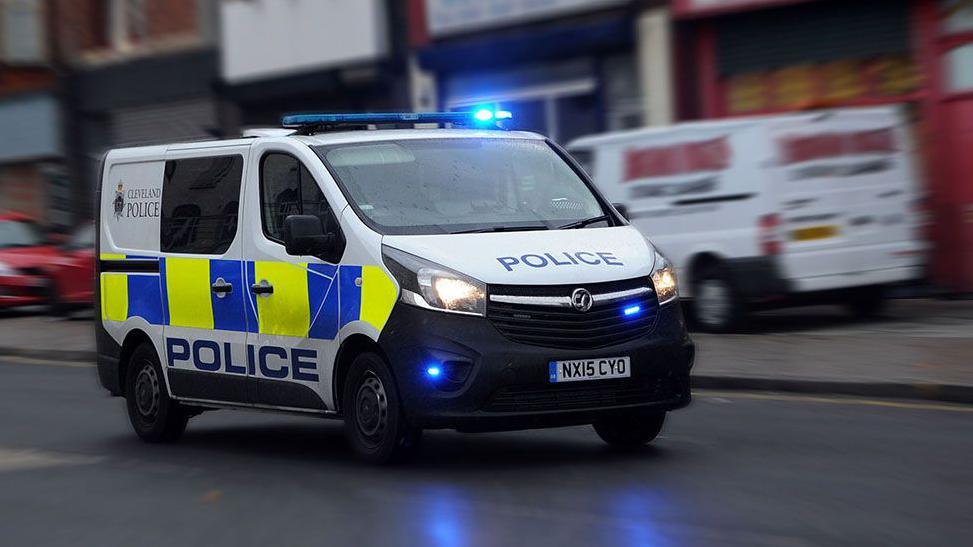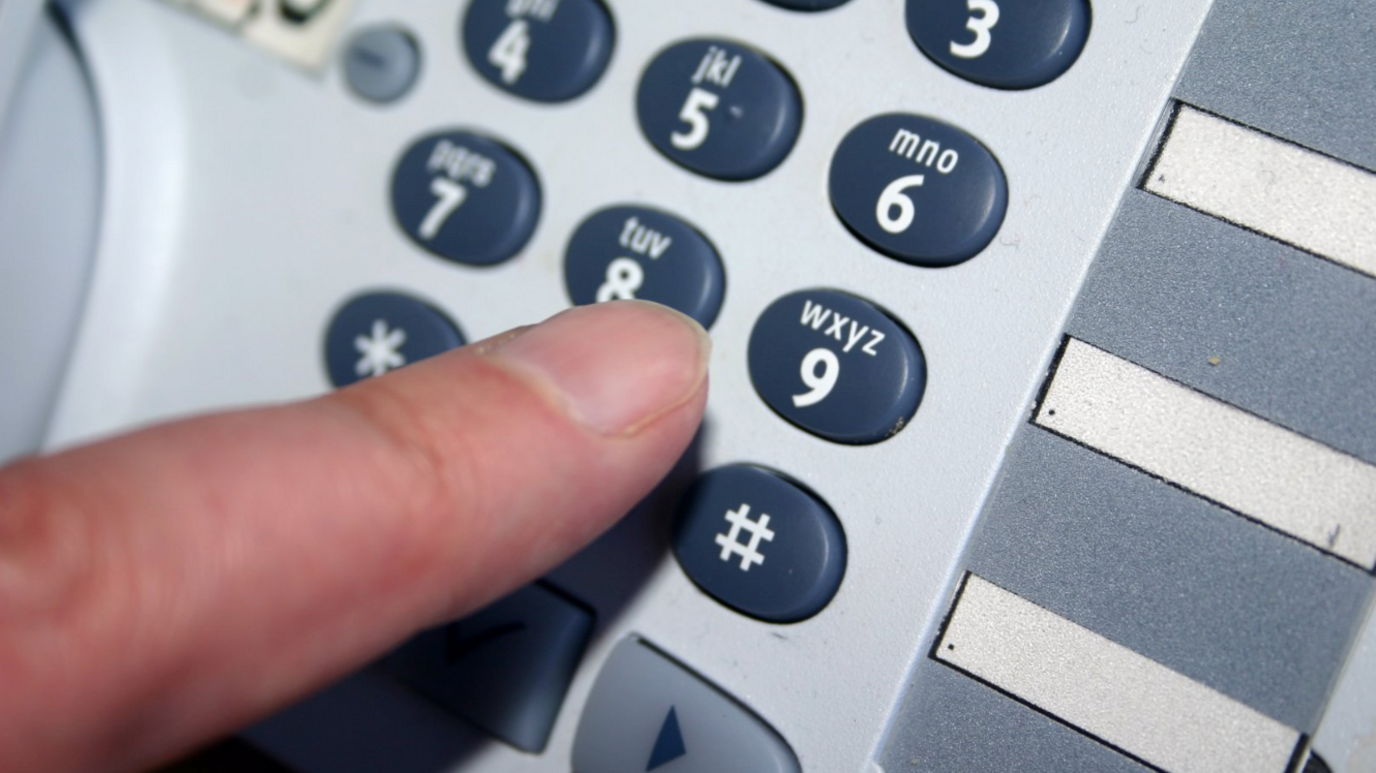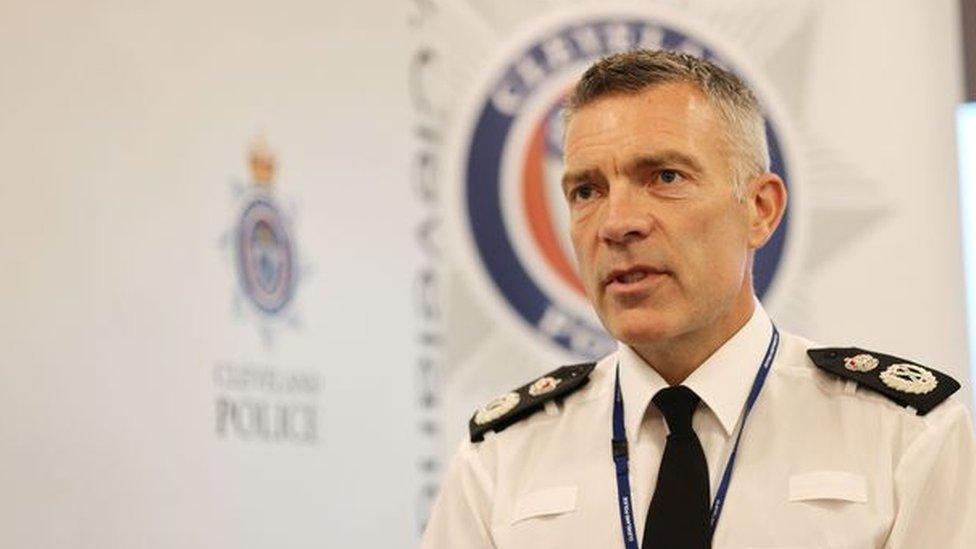More police 999 calls taking longer to answer

The number of 999 calls to Cleveland Police increased over the past year
- Published
The number of 999 calls received by a police force has increased, while the proportion of those answered within the national 10-second target has dropped.
Cleveland Police took nearly 122,000 emergency calls in the year to September, a rise of more than 8,500 on the previous 12 months.
The average waiting time was less but the percentage of calls answered within 10 seconds decreased to 84.3% from 88.2%.
Police and crime commissioner (PCC) Steve Turner said he remained "pleased with the progress and improvements made in the force control room, despite this slight dip in performance”.
The figures released by the PCC's office show the force received 121,752 emergency calls between October 2022 and September 2023, up 7.6% on the previous 12 months.
Call handlers answered in an average of 4.1 seconds, slightly quicker than in the previous 12 months (4.8 seconds) and significantly quicker than the year before that (7.1).
Non-emergency drop
Non-emergency calls received by Cleveland Police in the 12 months to September fell by 3,173, or 1.4%, to 221,164 when compared with the previous period.
The PCC suggested that this was a “national trend” and likely to be linked to increased digital reporting of crimes through the force website as well as use of his mobile phone app, the Local Democracy Reporting Service said.
In the three years to September 2023 non-emergency calls reduced by 5%.
The figures showed a higher proportion of non-999 calls were being answered within two minutes.
Follow BBC Tees on X (formerly Twitter), external, Facebook, external and Instagram, external. Send your story ideas to northeastandcumbria@bbc.co.uk.
Related topics
More stories from BBC North East and Cumbria
- Published24 November 2023

- Published20 September 2023

- Published31 July 2022
